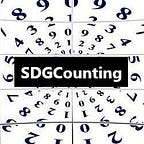Data to Leave No One Behind in the Context of COVID-19: Practical Steps from Benin and Beyond
SDGCounting UN World Data Forum Session Notes
This post is part of a series highlighting sessions from the 2020 UN Data Forum. Watch every session or read our summary.
Summary: COVID-19 has further exposed inequalities and vulnerabilities within and among countries. This session covers the Development Initiative’s work with Benin and Switzerland to drive better data on the poorest 20% in their countries. Panelists cover questions such as:
- Who is most likely to be left behind, where are they, and what impact is COVID-19 having on them?
- What kinds of data and statistics do we need to inform policy choices?
- What kinds of partnerships are required for effective data sharing and use?
- What should be the role of the international community?
Speakers
- Abdoulaye Bio Tchane, Benin Government
- Chris Ndatira Mukiza, Uganda Bureau of Statistics
- Harpinder Collacott, Development Initiatives
- Karen Mihorean, Statistics Canada
- Oliver Chinganya, UN Economic Commission for Africa
- Oliver Humbelin, Bern University of Applied Sciences
- Haishan Fu, World Bank
Key Takeaways
Oliver Humbelin, Bern University of Applied Sciences
- It’s very important to have poverty monitoring at the subnational level.
- One should look at the makeup of social assistance to see who falls below the poverty line that isn’t reached by welfare. That often means looking at the poorest 20% of a region.
- All members of society, and the poorest in particular, should benefit from economic growth. Currently only a minority profit.
- Race and ethnicity data are also very important, as well as tax and government benefits data.
Karen Mihorean of Statistics Canada
- Statistics Canada immediately saw the need to shift data collection approaches amid COVID-19. One of the things they’ve utilized is web panels, which have replaced more traditional approaches like an hour long survey.
Harpinder Collacott, Development Initiatives
- COVID-19 has led to a drastic reversal of progress toward ending poverty. Countries already experiencing high rates of poverty are being hit hardest. Those at risk of being left behind are also the ones who have a lack of foundational data systems, and the financial assistance needed to improve data systems has not happened fast enough.
- Global poverty data isn’t timely or disaggregated enough to tackle the problem of COVID-19 in real time, so it is impossible to determine who is the most vulnerable. Little progress has been made in disaggregated data in many countries since 2015.
- The World Bank is using phone surveys. In Nigeria, surveys show how COVID-19 is disproportionately affecting poor households and children living in the poorest households had biggest drops in learning. Additionally, women and girls are more likely to report losing their jobs.
- It is critical that COVID response is locally led and that officials have access to real time data. To support local communication, the following is required: building trusted stakeholder partnerships, embedding the principles of “leave no one behind” and empowering national and local leaders. None of this is possible without sustained financial commitment in data.
Chris Ndatira Mukiza, Uganda Bureau of Statistics
- Foundational government data systems are critical to addressing COVID-19 with administrative data being particularly important.
- Through data, the Ugandan government saw that people in urban areas had greater knowledge of preventative measures than people in rural areas. On top of that, rural households couldn’t access treatment from April to June.
- Citizens in poor areas are still facing problems accessing soap.
bp, bk
